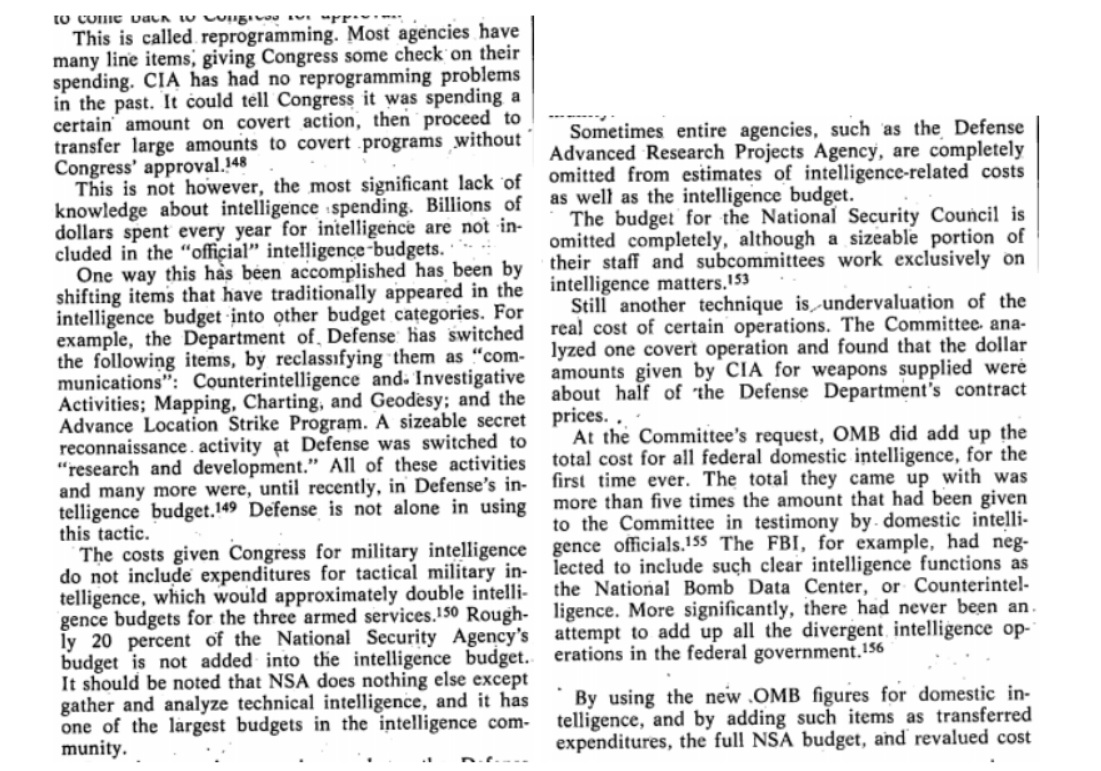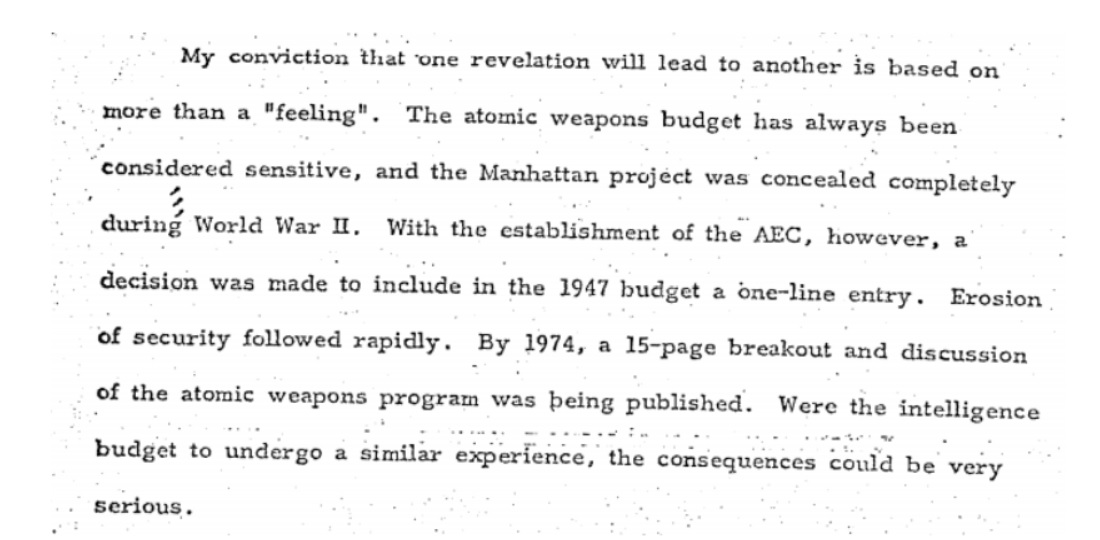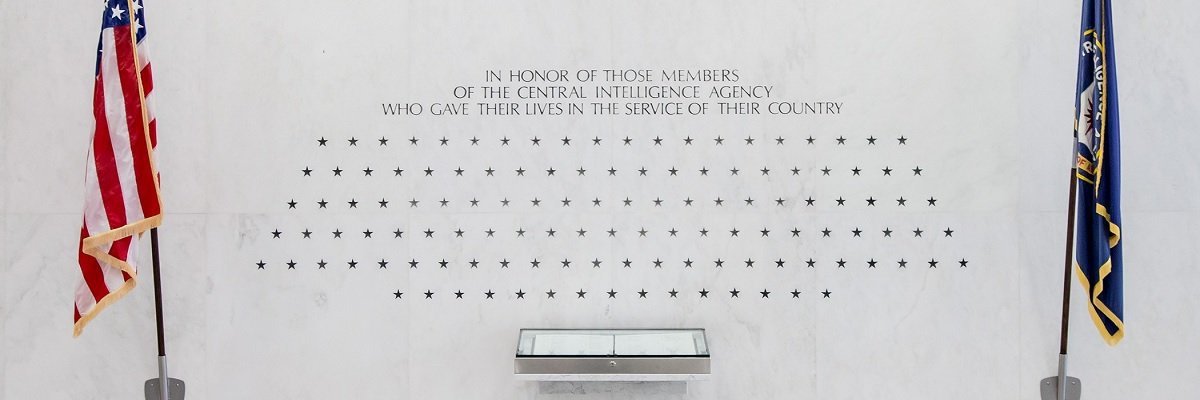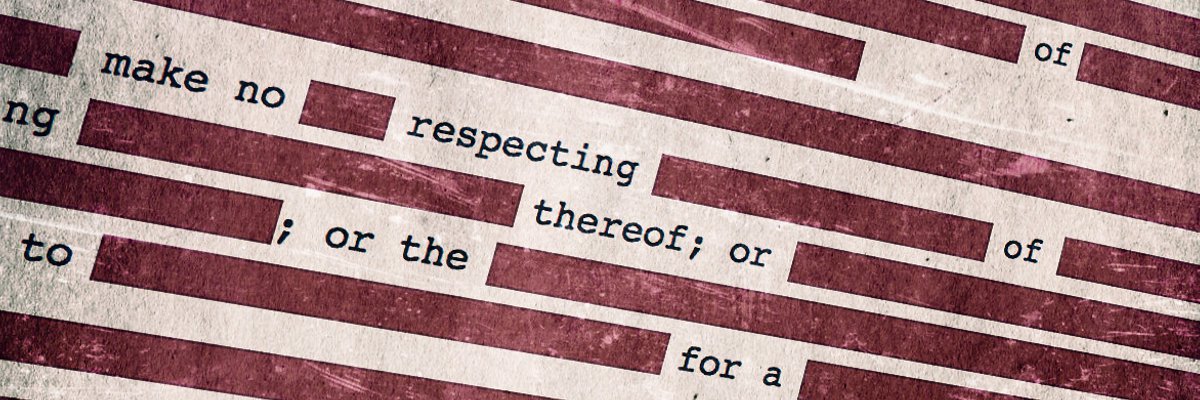The 1975 Pike Committee’s report - which was successfully censored, resulting in the leaked copy being labelled “the CIA report the President doesn’t want you to read” - was an immediate problem for the Agency. The Agency knew that the Pike Committee would revisit the proposal from Senator Proxmire, and inevitably result in recommendations that CIA was desperate to avoid.
These concerns, it seemed, were well founded, as the Committee ultimately recommended that the Government Accountability Office be granted audit authority over CIA - recommendations that CIA was able to, once again, successfully prevent from being implemented.

The censored report would significantly conclude that the internal audit structure was insufficient, and that “the cost of intelligence today is at least three to four times the amount reported to Congress.” This conclusion was significant especially in light of the fact that those arguing against granting the GAO audit authority cited Congress’ ability to ask the Intelligence Community for these figures. The Pike Committee’s report cited a number of other problems with the Intelligence Community’s budget procedure, especially CIA’s. In particular, CIA was uniquely equipped to “reprogram” their budget beyond Congressional approval. In effect, the Agency could change how funds were allocated without Congress becoming aware of it.
In light of the report’s damning findings and recommendations, it’s not surprising that it was censored. Nor was it surprising that the recommendations would not be enacted. The Agency had decades of practice at killing such endeavors, and they wasted no time in renewing their efforts in the face of the Pike Committee. Within a few years, Executive Order 12036 would codify CIA’s explicit authority to control the budget “and, when necessary, to reprogram funding.”


An early draft of the CIA Director’s testimony, seemingly in preparation for the Pike Committee, addresses the desire to grant the GAO audit authority over CIA. One such argument was crossed out in its entirety with “vintage Nixon!” written in the margins. This paragraph argued that answering any questions could create precedent. It also proposed the Director raise concern over Congress’ inability to “refrain from questions,” along with the press’ inability to refrain from asking CIA questions.

Dubious historical evidence is then presented as proof that simply revealing a one-line budget entry would inevitability result in uncontrollable deterioration of security. This argument proposed that the Manhattan project “was concealed completely during World War II” (a statement which is almost true, if a number of caveats are added) but that a great deal more information had been leaked out following the war and the creation of the Atomic Energy Commission. This, of course, overlooked the fact that the Manhattan project predated the public detonation of not one but two nuclear weapons against Japan.
Any reasonable person could conclude that the public revelation of the existence of nuclear weapons had more to do with the increased transparency surrounding them. The logic is additionally questionable in light of the fact that nuclear deterrents and the concept of mutually assured destruction required that the weapons and their potential use not be a secret.

The draft remarks went on to offer a hypothetical variation of history wherein the budget had been public, word leaked out about the U-2 contracts, the Soviet Union correctly correlated the budget changes with the U-2 contracts, targeted the U-2 contractors, penetrated the program, developed countermeasures and been ready to shoot down the U-2 before the first one crossed into Soviet territory. The draft remarks then conclude by suggesting that it was unlikely that Congress or the American public would want the Agency to weaken itself by being slightly transparent. This suggestion was, without comment, X-ed out.
Notably, the argument that revealing the budget total would be devastating to national security has been refuted by no less than three former CIA Directors.
It was in this exchange that a memo from CIA’s General Counsel admitted that the CIA-GAO letters detailing the termination of GAO’s audits could be declassified. Decades later, CIA nevertheless argued that these letters were exempt from declassification in order to protect the Agency’s “sources and methods.” Fortunately, the letters were published by the Pike Committee before the Agency could decide they were unfit for public consumption.
Read Part 2 here
Like Emma Best’s work? Support her on Patreon.
Image via C-SPAN




